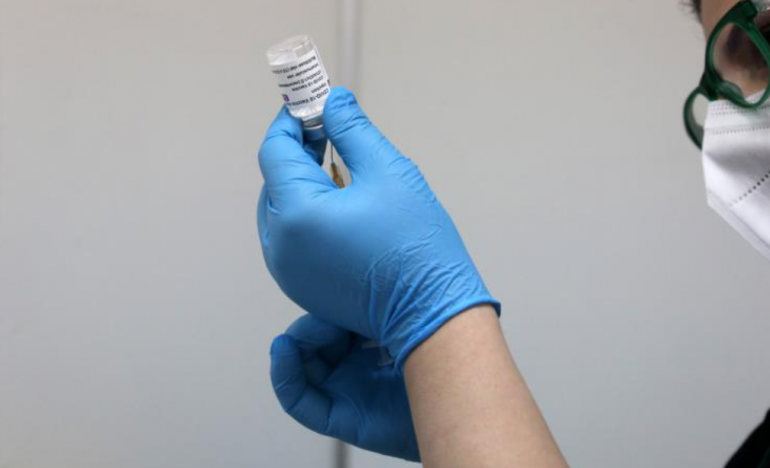Scientists are stepping up their efforts to explore the potential benefits of combining doses of different coronavirus vaccines, and the first results are expected. Britain made the start when it announced in January - shocking several experts around the world - that if a second dose of the same vaccine was not available, patients could be vaccinated with another vaccine.
This policy was not initially based on scientific data, which shows that combining doses of different vaccines is both safe and effective. That, however, may soon change and there may be relevant data, as the New York Times points out. Researchers at the University of Oxford began the first Com-Cov trial in February, with 830 volunteers taking the first dose of the Pfizer / BioNTech vaccine and the second with AstraZeneca, or vice versa.
In the case of the British clinical trial, Oxford researchers combined two vaccines of different technology, the Pfizer / BioNtech which is an mRNA vaccine (containing tiny lipid beads containing RNA-based genetic instructions that allow cells to produce protein. coronavirus) and AstraZeneca (which uses an adenovirus as a carrier of genetic instructions).
Soon, British scientists will begin to analyze the blood of volunteers to see how well the "marriage" of different vaccines works and whether the immune system of the vaccinated responds better than if they had received two doses of the same vaccine. As more and more vaccines are approved Covid-19, the combinations of different vaccines that are being tested are gradually increasing.
Some have already started in humans, while others are currently being tested in animals. The aim is not only to facilitate vaccinations, as the competent health authorities will now have more choices in their hands thanks to the combinations, but also to determine whether a pair of different vaccines can provide better immunity than two doses of the same vaccine.
The idea of combining different vaccines was not born in the midst of this pandemic, but has been tried from time to time for decades, e.g. against influenza, HIV and Ebola viruses. At present, however, all this research does not have much to show, as it has been done mainly on animals. In 2017, researchers at the Russian Gamaleya Institute developed a vaccine against Ebola, in which the first dose contained an adenovirus and the second another virus. The same approach was used by Russian scientists to develop the effective "Sputnik-V" vaccine against Covid-19, in which the first dose contains the adenovirus of the Ebola vaccine (Ad5), while the second dose contains another adenovirus (Ad26).
In both of these adenoviruses, a gene that produces the spike protein has been introduced into the surface of the coronavirus. Recently, the Russian Gamaleya Research Institute joined forces with AstraZeneca (the two doses of the vaccine contain a different chimpanzee adenovirus, ChAdOx1), to study how well the two different vaccines work if combined.
In the two clinical trials - one in Azerbaijan that has just begun and one in Russia that will soon begin - the volunteers will receive one dose of AstraZeneca and one dose of Sputnik-V. Another type of vaccine being tested Covid-19 does not contain genetic instructions for the formation of the coronavirus protein, but the protein itself, either in whole or in part.
To date, a total of 29 such protein-based vaccines are in clinical trials, but none have yet been approved. Some scientists believe that combining such a vaccine (which produces many antibodies) with a vaccine that contains a viral carrier such as adenoviruses (which better "trains" the cells of the immune system) would provide additional immunity benefits. Although this combination has been unsuccessfully tested against HIV (AIDS), it is hoped that it will "work" better against the SARS-CoV-2 coronavirus.
Today, 13 vaccines are used against the coronavirus, while another 67 are still in clinical trials. Whether other attempts to combine different vaccines will be made will depend - to a large extent - on the willingness of the pharmaceutical companies that develop them).
